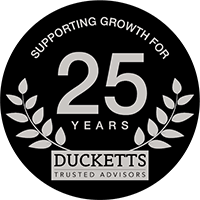Economic Abuse
Published:
What is it? Could you spot it? What can we do?
What is economic abuse?
Domestic abuse can take many forms including physical, psychological and economic. Economic abuse has a broad definition but includes restricting access to essentials, such as food, clothing and transport, as well as preventing the means to improve your economic status, for example through employment, education or training.
Financial abuse is one element of economic abuse and includes refusing access to bank accounts, controlling how and when money is spent, perpetrators insisting all bills are in their partner’s name and building up debts in their partner’s name, often without their knowledge.
A Co-operative Bank study in 2017 revealed:
- 20% of people in the UK have experienced financial abuse in an intimate relationship
- 60% of cases are reported by women
- A third of financial abuse victims don’t tell anyone.
- 86% of female victims are subjected to other forms of abuse.
So a much wider problem than you might expect and not one that is restricted to women.
Could you spot it?
The authorities are waking up to the issue. The FCA introduced new regulations for helping vulnerable clients in 2015, and in 2018 the UK Finance Code of Practice on Financial Abuse was launched. Major UK Banks have introduced a raft of measures and training, enabling staff to help victims of financial abuse.
You might think that finance professionals, such as accountants won’t have the same level of influence as perhaps a bank. But there are situations in which accountants may be dealing with victims, and of course perpetrators, of financial abuse.
Sofia Thomas CTA ATT, a specialist in tax on divorce and IHT matters, outlined an example in her recent article, Spotting the signs of economic abuse, in TAXline.
In a case that she had previously worked on, a husband and wife were both directors and 50% shareholders of a company, but the husband effectively ran the company. They separated and the husband left the country leaving no forwarding address. The company had run up large VAT debts, of which the wife was completely unaware. HMRC pursued the wife for repayment (as was their right), because they were unable to contact her husband.
Another example might be where again a husband and wife each own 50% of a company (to allow a tax efficient way of taking income from the company), but again the company is run by the husband. The reasoning would be that more cash is available for the family. It all sounds good so far, but what happens if the relationship breaks down?
It is possible that the husband paid both dividends into his personal bank account or a joint account which cannot be accessed by his wife. Prior to separation he paid the tax for both himself and his wife, but following separation he doesn’t. This could leave the wife with a tax bill that she cannot pay.
What can we do?
We are often one of the few trusted individuals who get to see inside the world of a family's finances. Surely we have a responsibility to act when we see economic abuse taking place?
Sofia Thomas said “My company provides tax advice to couples on divorce or family breakdown. What we have seen in the past few years has caused me to question whether we as advisers are always aware of the long-term worst-case scenario consequences of the planning we may recommend to couples.”
Dr Nicola Sharp-Jeffs, director of the charity Surviving Economic Abuse says;
"It is vitally important that professionals such as accountants are aware of the dynamics of domestic abuse and how this can involve the control, exploitation or sabotage of an individual's finances. Abusers commonly use financial systems, including the tax system, as part of the tactics they use to exert control over a victim, leaving them in debt and preventing them from rebuilding their lives safely. Professionals have an opportunity to raise awareness of economic abuse, close down such opportunities and link victims into specialist support.”
We need to be aware of all possible consequences, resulting from our advice, raise awareness so that all team members are aware of financial abuse and be able to signpost victims to appropriate support.
If you’re concerned that either yourself or someone you know is potentially a victim of economic abuse then there is a huge range of resources available on the Money Advice Service website; https://www.moneyadviceservice.org.uk/en/articles/protecting-against-financial-abuse
A checklist is also available for concerned friends and family on spotting the signs of economic abuse here; https://survivingeconomicabuse.org/wp-content/uploads/2019/07/Spotting-the-signs-for-friends-and-family_.pdf
Martyn Wright.
Article adapted from TAXline (an ICAEW publication) by Sofia Thomas, CTA ATT, director of Sofia Thomas Ltd, which specialises in tax on divorce and inheritance tax matters.
Latest Posts
The Budget 2025
Welcome to the Team, Adam Wright!
Volatile, Uncertain, Complex and Ambiguous.
Meet The Team - Phil Taylor
Tax Tips 2025

